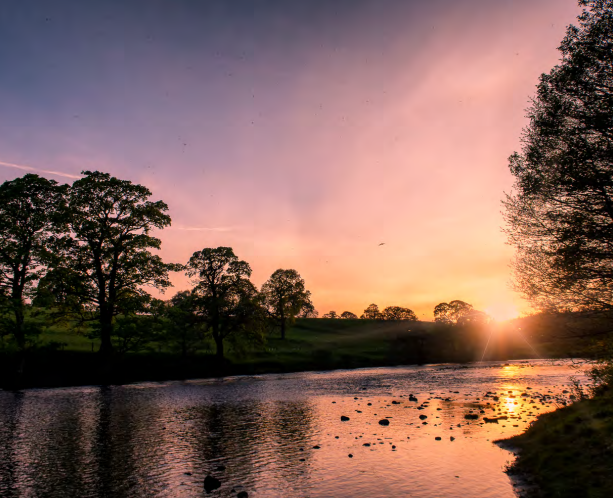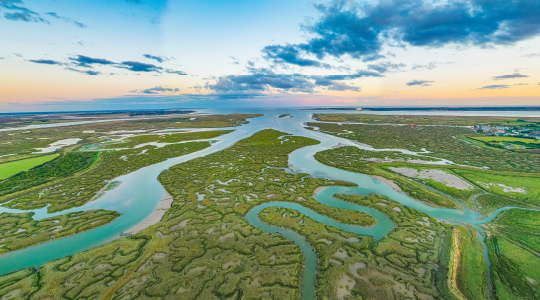
Hello Chester le Street
Thank you to everyone who attended our event.
Working hard with partners and local people in their communities, we are restoring and regenerating our natural environment, creating an even better place to live and work through our local actions.
Our Local Environment. Our Ambition. Our Local Action.
Our goal is to prevent pollution and sewage from entering rivers and seas across our region.
- Storm overflows (SOs) are an important part of our wastewater network because they protect customers’ homes and the environment. They operate automatically as a relief system during heavy rain or storm conditions, or if the sewers are overwhelmed because of more water or blockages, and reduce the risk of flooding to streets, homes and businesses.
- In and surrounding Chester-le-Street specifically we will upgrade SOs including installing screens to prevent plastic bags, branches, and other solid materials from entering the sewer system at: Beverley Gardens; Cone Lane; Pelaw Bank; Hopgarth Gardens; Shields Road; Park Road; Ash Meadows; two at Pelton Fell Road; and Chester-le-Street Sewage Treatment Works.
- You can see how SOs work in our information video (opens new window).
- At the end of April we launched our digital interactive map (opens new window) to show up-to-date Storm Overflow information (opens new window) across the region.
- In our next Business Plan for 2025 to 2030, we want to invest £4.5bn across our business - our biggest ever package to improve water and wastewater services – as we work to reduce the use of storm overflows and improve bathing waters.
- You can see details of our plans along the river Wear here.
- Watch our SOs information video here (opens new window).
- Information on our plan for storm overflows can be viewed on the national storm overflow interactive map (opens new window).
The River Wear catchment is the area of land through which water from rain, melting snow or ice, drains into the Wear.
- It is covered by our Thriving Catchments programme. In this programme we are working with the Rivers Trust; the local Wear Rivers Trust; Durham Wildlife Trust and local farmers and land managers to look at managing pollutants in the Wear catchment before they get into the river.
- As part of our Thriving River Catchments programme, we are also co-funding a full-time Wear Catchment Manager with Wear Rivers Trust, who will work to improve the River Wear catchment area.
- We’ve been investing at our sewage treatment works to improve the quality of treated wastewater flowing into the River Wear, so that we can play our part in river quality improvements.
- So far, we’ve invested at seven sites in the Wear catchment area over the past five years to remove pollutants, which can cause excess algae. These improvements will continue with further investment to 2030.
- We are working hard to create a more sustainable catchment and Nature-based Solutions, and not rely on concrete and chemicals which cost our customers money and have high carbon emissions.
We need your help, Chester-le-Street.
- Wet wipes are the biggest cause of blockages and sewer flooding.
- You can make a big difference by doing one simple thing, instead of flushing it down the loo, bin the wipe.
Bluespace is a term for rivers, lakes, or the sea that people can access.
- Working hard with local partners, our bluespaces scheme will improve a number of these areas in our region.
- NWG, the Wear Rivers Trust and Durham County Council are delivering water environment improvements to 3.2 km of Bluespaces across the South Burn catchment in County Durham.
- The South Burn catchment is on the urban fringe, between the urban areas of Chester-le-Street and Durham. It contains wooded riparian corridor Daisy Hill Local Nature Reserve and Waldridge Fell SSSI and provides important access to nature for residents and visitors.
- The project will focus on three areas: water quality, access, and habitat improvements.
- Improvements to footpath steps and bridge repairs will facilitate continued safe use and enjoyment of the water environment of the area.
- There is an extensive right of way network along the South Burn which includes the Waldridge Fell Heritage 100 walk (opens new window).
- The Wear Rivers Trust and Durham County Council are facilitating volunteer activity to deliver further water environment improvements along the riparian corridor which should encourage positive environmental behaviours and awareness.
- We want local people to propose local bluespaces for improvement. Find out more information including guidance about whether your project might be eligible. Or email us at bluespaces@nwl.co.uk.
Saving water protects our local environment by limiting the amount of water we must remove.
- We will be encouraging local people to use water wisely and promoting the benefits of water meters.
- A water meter could reduce the amount of water you use by up to 20% saving you an average £264 a year on your bill.
- To find out if a water meter is right for you, why not try our water usage calculator to see if it can save you money.
Even after our planned big investments we still expect bills in the North East to be the lowest in England.
- We know our communities are facing a cost-of-living crisis with food, housing, transport, and other bills going up.
- We are committed to helping those that need it most. If you or anyone you know is struggling to pay their bills, please talk to us. There are lots of ways we can help. Try our eligibility checker to find out which of our financial support schemes you may be eligible for.
Are you passionate about caring for our local waterways and making a difference in your community? If you are then why not become a Water Ranger?
- Water Rangers are an enthusiastic group of local volunteers who roll up their sleeves and take positive local action by reporting any issues and notable wildlife they see in and around our local rivers and streams.
- Don’t delay, email waterrangers@nwl.co.uk to join today.
We are working hard to tackle the issue of invasive species along the Wear, including in and around Chester-le-Street.
- Invasive species have been introduced by people and have a negative impact on the economy, wildlife, or habitats in Britain.
- Specifically, we are providing a total of £32,000 to the Wear Rivers Trust. This support enables experts and volunteers to work on removing harmful species such as Giant Hogweed, Himalayan Balsam and Japanese Knotweed from local watercourses, ultimately benefiting water quality in the area.
- The Government maintains a list of invasive plants and animals on Schedule 9 of the Wildlife and Countryside Act. Find out more about the legislation (opens new window)
- Find out how to get involved and make a positive local impact.
We think it’s important to give back to make a positive impact in our local communities.
- All our teams at Northumbrian Water are encouraged to volunteer to support community groups and charities through our Just an Hour scheme.
- This important initiative gets our teams out in the communities we serve, putting their shoulders to the wheel of great causes - people choose causes that resonate with them personally - for at least 15 hours a year.
- Find out more about Just an Hour.
Find out more
Are you sure?
Changes are waiting to be saved



